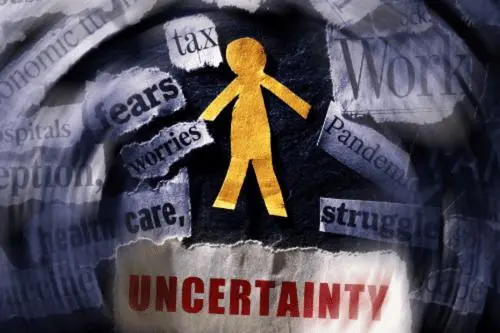Feeling Like a Failure
Takeaway: If you are always feeling like no matter what you do, it is never good enough, keep reading. When you always feel like a failure, you will limit yourself in every area from career to personal relationships. In this post, I explain the core belief that supports this feeling and the changes that needs to happen so you no longer feel like a failure and live life better!
Table of Contents:
- Why do I Keep Telling Myself I’m Not Good Enough?
- Feeling Like You Can’t do Anything Right
- I Don’t Feel Good about Myself
- Four Strategies to Not Feel Like Failure
If you are always thinking that “nothing I do is good enough,” whether, for your boss, your partner, your parents, or even yourself, it’s time to start changing this narrative. When you feel like a failure, you will see things and experience outcomes from this perspective. The sooner the better if you want to live life better. This thought can lead to never-ending frustrations, exhaustion, and a deep sense of resounding defeat.
WHY DO I KEEP TELLING MYSELF I’M NOT GOOD ENOUGH?

It may seem like thoughts randomly appear out of nowhere in our lives. However, most of our thoughts are very much engrained from years of thinking the same way over and over again.
It’s important to understand that when thoughts are repeated over and over again, the brain will accept that as a core belief. The core belief will be embedded like a program is embedded in a computer. It then becomes automatic and appears without choice. The mental radar has been set.
THOUGHTS BECOME YOUR TRUTHS
These statements, “I’m not good enough” or “I can’t do anything right” are automatic responses that most likely developed out of an experience, a particular event or routine conditioning that, over time, was accepted as truth.
Often what starts as a belief for something seemingly benign (For example: being scolded when younger for not doing the dishes well enough) grows to become a universal truth about most things in life.
FEELING LIKE YOU CAN’T DO ANYTHING RIGHT
Feeling like you can’t do anything right is like the hand-holding partner for the thought of “I am not good enough.” If you are a person who strives for perfection, then this partnership in thinking is likely happening.
CONTROL YOUR SELF-TALK
If you say to yourself “I can’t do anything right” recognize that the power word which makes this statement so defeating is the word, anything. “Anything” is a word known to produce all-or-nothing type of thinking. In psychology it is considered a type of cognitive distortion.
It is a distorted way of thinking because the word “anything” like the words “never,” “always,” or “nothing” represent extreme ways of thinking. This extreme way of thinking can actually negate any or all the things you “can” do. People will tend to respond to what they tell themselves continuously. What you are telling yourself over and over again is more powerful to the mind than the occasional positive thought.

SUBCONSCIOUS PROGRAMMING
And since our automatic thinking is embedded in our subconscious, it can seem impossible to stop, no matter how much we try. This is because our subconscious is much more powerful than our conscious thinking. Beliefs are held deep in the subconscious. How we think and behave may seem like a conscious choice; but is happening more automatically that you realize. Your belief is running the show. To change how you feel, you need to change the core belief of yourself. (Read more here on subconscious programming).
“If you think you can, you can. If you think you can’t, you’re right!” Mary Kay Ash
I DON’T FEEL GOOD ABOUT MYSELF
When you don’t feel good about yourself, it is likely your self-talk is telling you. Your belief dictates the emotion. If this is a chronic feeling that seldom leaves, the person may be carrying negative self-beliefs. Negative self-beliefs are often beliefs developed from a past experience. This could be something seen, heard or felt. Basically it’s an experience that left an indelible mark in the psyche.
FEEL LIKE A FAILURE THOUGHTS CAN START FROM MENTAL PROGRAMS OF CHILDHOOD

The belief associated with this feeling engages continuous self-doubt and encapsulates the mind into a sense of unworthiness.
However, if you don’t feel good about yourself, it is difficult for others to feel confident in you because no matter how much you may try to hide your feelings, the true belief about yourself eventually emerges.
A STORY
As a Mindset Coach, I recently worked with an entrepreneur who listed all the departments she oversaw, committees she was on, and meetings she led, and would go to sleep at night not feeling good about herself because she always felt that she wasn’t doing enough.
She also felt she could not succeed no matter how hard she tried because she could not believe in herself. Self-belief shapes your thinking your behavior and your experiences. If the belief is negative and limiting, it will lead you down a road of disappointments no matter how many accolades you amass. Her life changed after she changed the deep seated belief of herself. This automatically changed the thinking and propelled her to success not just professionally but personally as well.
REFRAME THE STATEMENT
Ask yourself better questions. If you tell yourself I’m not good enough, try to get to the core of the thought. Ask yourself, “how do I feel enough?” Because if you don’t feel enough, doing more, striving more, and pushing yourself more, is a never-arriving journey. When you accept and hold the belief that “I am enough”, then life tends to get easier and easier.
I THINK POSITIVE BUT I STILL FEEL LIKE A FAILURE
The word “failure” contributes to the “all-or-nothing” way of thinking. If you are constantly telling yourself “I’m a failure,” it is likely that you are not limiting this kind of self-berating thinking to this one thought. Most likely, you are also including thoughts of “I’m an idiot,” “I can never get it right,” or “I’m a loser” to name a few.
IRRATIONAL BELIEFS
While it is both ok and healthy to feel your emotions, labeling them as who you are rather than the behavior that you did, limits growth. This belief actually trains the brain to focus on holding on the identity of “being a failure”.
Thinking and then believing you’re a failure is an irrational belief that can become a looping, ingrained thought that can spill into many other areas of life..
“Failure isn’t fatal, but failure to change might be” John Wooden
OVERCOME SELF-DEFEATING SELF TALK
According to the National Science Foundation, we have some 50,000 thoughts a day. Most of these thoughts are actually memories–thoughts about things we still need to do but haven’t, frustrations with interactions we had, regrets for not speaking up, and so forth.
We tend to think the same thoughts and if you feel stuck in life, it is most likely that your self-talk (your thinking) is set on this programmed default setting.
4 Strategies to Not Feel Like a Failure
Listen
Turn off distractions. Take a few moments throughout the day without your phone, computer, tv, music turned on, and listen to your thoughts. What is the continuous stream of thoughts saying? You can’t change something you are not aware of so really take the time and hear yourself. When you are aware ask yourself, “why” am I thinking about this? Then ask yourself, is this thought helping me or hurting me?
Reframe your thoughts
Rather than just replacing your thoughts with positive thinking, actually choose better thoughts. It is understandable that when someone tells you to just “think positive” you get more irritated. It’s not that easy! Oftentimes, thinking a positive thought when outside reality shows to differ, the positive thought is fleeting at best. A better thought can simply be the next step up from “I’m a failure” to “I failed. I’m ok”
Move your body to change your mind
Just like the looping thoughts that get stuck in our mind, we tend to move and hold our body in a certain way when we think. Changing your physiology can change your psychology. If you find yourself stuck in your head, get moving. Adding a different physical activity to your movements help. For example, hum a song while taking a walk, do jumping jacks while counting backwards, pump your double fists into the air, and repeat your positive reframe out loud.
Get Dreamy
Negative self-talk is housed deep in our subconscious. This is the part of the mind where the brain has encoded the program to make it automatic and efficient. The subconscious is the total reservoir of all our accumulated experiences, memories and beliefs. Choosing to make the change at this level requires a vigilance to keep on it, catching the negative self-talk when it occurs, reframing it and so forth.

RAPID TRANSFORMATIONAL THERAPY
The brain is in a slower more relaxed brain-wave state (aka Alpha brain), it can be more susceptible to change. The time before sleep is a perfect time to do your reframe and positive thinking. Rapid Transformational Therapy, a method of hypnosis, is also an extremely valuable tool to make significant shifts in the subconscious quickly and then reprogram your mindset to more positive and empowering ways of thinking. This can be done through listening to progressive relaxation and using imagery or through the guidance of a qualified coach.
Whatever the technique you choose, know that changing negative self-talk is possible and necessary to get what you ultimately want in life.
Schedule a free 20-minute consultation now!













